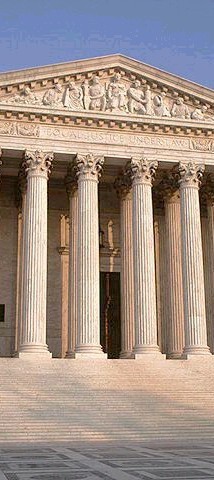Federal Omnipotence
We all get smarter from experience. To maintain a free enterprise form of government, our national founders changed two significant things that had failed during the period our nation was governed by the Articles of Confederation, the first attempt at national governance in the Americas. One change was to take away the power of states to interfere with contracts and cancel debts of favored constituents. This change resulted in bankruptcy becoming a federal duty. The second was to insist on the control of interstate commerce by the central government to avoid each state erecting barriers to trade that harmed overall freedom. Again this was done during the period of the Articles of Confederation to favor certain local constituents against the national good.
These were not the only changes that found their way into our Constitution but they were two changes of huge significance to our system of government, each resulting in greater freedom. The first of these, federal bankruptcy law, sanctified contracts so that people could and would trust that fair laws would protect them when they loaned money. As a result our form of free enterprise was augmented by financial rules that smoothed the process of commerce by the availability of monetary liquidity.
The second, the commerce clause, created a single huge market that was free from bureaucratic interference and allowed for hard work and individual creativity to flourish.
Unfortunately that commerce clause has become the basis for an egregious expansion of federal power that our founders would have abhorred. Primarily because it now burdens our nation with an egregious level of bureaucratic interference that stifles creativity and hard work. No greater example of this abuse exists than the case of Wickard (the Secretary of Agriculture who demanded the power to punish a farmer for feeding his family) v. Filburn (a farmer who grew wheat for his own family's consumption). Wickard v. Filburn is a classic example of the way that freedom is destroyed by that element that always exists in society who savor dictatorship more than freedom. Unfortunately too many of our Judges have been biased in favor of dictatorial interpretations of law for far too long.
A simple explanation of the case is that Filburn was told he had to limit his planting of wheat to 12 acres so that prices could remain high enough to satisfy a bureaucratic need to promote farm profits. Filburn did not abide by this restriction, but instead planted some extra wheat for use by his own family and use on his own farm. Though the extra wheat he grew was clearly not involved in Interstate Commerce, the claimed excuse for the limit on the acreage, Wickard argued that if citizens were allowed to grow their own wheat it would effect Interstate Commerce. If enough grew their own wheat, there would be no Interstate Commerce for wheat at all since no one would need to buy wheat. Therefore no one could grow wheat without permission of a government bureaucrat because it MIGHT effect Interstate Commerce in aggregate.
The idiocy of that logic in a nation that pretends to care about freedom is obvious. The only purpose of Interstate Commerce is to serve the people's needs that they cannot provide for themselves. If everyone grew their own wheat the one person we don't need is a Secretary of Agriculture... or his department either. It is thus obvious that the real concern is the power to take freedom away from the individual. Our courts were too much in favor of power to see this... or maybe just too corrupt. In any event, Wickard v. Filburn is the law of the land. As a direct result, federal power has grown exponentially and freedom has contracted in proportion.
This is especially true since courts have used Wickard v. Filburn to interpret that our federal government has almost no Constitutional barriers to totalitarian control.


0 Comments:
Post a Comment
Subscribe to Post Comments [Atom]
<< Home